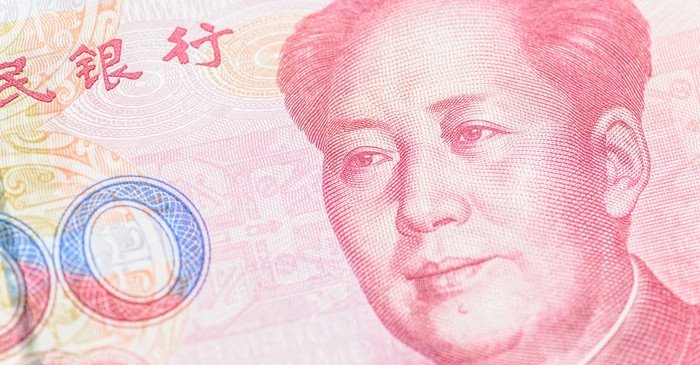October 9, 2014
Santiago, Chile
The Bank of Korea — South Korea’s central bank — released data that says South Korean domestic deposits have reached 16.19 billion Chinese renminbi in July this year, which is a 55-fold increase from the same period last year when renminbi deposits accounted for only 290 million.
According to data from South Korean banks, the proportion of foreign currency deposits held in renminbi was 0.4% at the end of 2012. That number reached 13.7% at the end of last year, while at the end of July this year the renminbi accounted for 25.9% of all foreign currency deposits in South Korea.
That’s an incredible, exponential increase.
Since Korean interest rates continue to be low and follow closely those of most Western countries, Koreans realize that if they continue to hold their money in bank accounts denominated in won, their savings are steadily and surreptitiously being diminished by inflation that’s higher then their paltry returns.
With a lack of good investment opportunities in a zero-interest rate environment and with frothy equity markets, Koreans are at least diversifying their currency exposure, with domestic capital rapidly flowing into renminbi deposits that yield much higher at around 3.25% per year.
Coupled with the continued strength of the renminbi, the attractiveness of diversifying their capital in foreign currencies, and the renminbi in particular, is clearly a firm trend among Koreans.
This is a well known scenario. Just as Europeans from countries with weaker currencies and economic prospects used to safeguard their savings by holding them in Deutschmarks and Swiss franks, we see the same trend happening today.
Individuals, companies and even governments are diversifying their currency exposure — mostly on the account of the US dollar. Renminbi denominated bonds are now being issued by businesses all over the world– heck, even McDonald’s issued a renminbi bond.
And now the UK will become the first country in the world other than China to issue renminbi denominated government debt. In fact, just this morning the UK Treasury announced that it hired Bank of China, HSBC and Standard Chartered to arrange the sale, with the bond issuance likely happening next Monday.
This follows last week’s announcement from the People’s Bank of China that renminbi and euro are now directly tradable, without the need to use the US dollar as a conduit.
The signs are clearly all there. Everyone realizes that the present system is on its way out and are taking appropriate measures. The Germans, the French, the Brits, the Canadians, the Swiss, the Koreans…
Don’t you think it’s time to step up and do something about it too?
The situation today looks a lot like one big game of musical chairs. Investors and “hot money” desperately looking for yield in a zero interest rate environment are pushing prices of practically all assets sky high and diversifying into markets and currencies with brighter prospects.
Make sure that you’re not the one left stranded when the music stops.








